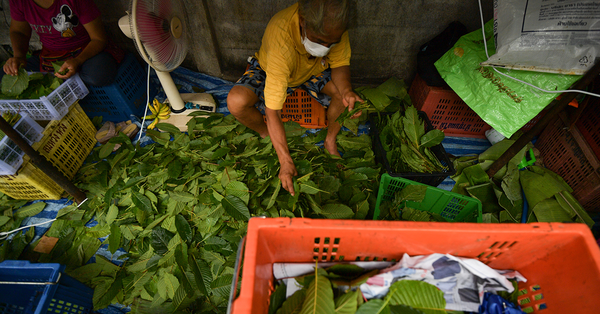Vachira Vachira via Reuters Connect
Declaración del IDPC con ocasión de la 44ta reunión del Comité de Expertos de la OMS en Drogas que Causan Dependencia
El IDPC invoca al Comité a considerar los profundos impactos de las opciones legales y de políticas que se pueden desencadenar con la clasificación en la lista de sustancias controladas a nivel internacional, y a recoger debidamente las lecciones aprendidas de controles anteriores a nivel nacional, tomándolas en cuenta antes de avanzar en la clasificación del kratom en la lista de sustancias controladas. Más información, en inglés, está disponible abajo.
International Drug Policy Consortium Statement - Pre-review of Kratom, mitragynine and 7-hydroxymitragynine at the 44th WHO Expert Committee on Drug Dependence, 11 – 15 October 2021
This written submission is by the International Drug Policy Consortium (IDPC): a global network of more than 190 NGOs that promotes drug policies grounded in the principles of health, human rights, development, and civil society engagement. As the ECDD is planning to conduct pre-reviews on Kratom and its active ingredients mitragynine and 7-hydroxymitragynine, we offer some insights and recommendations on the impacts of criminalisation that have resulted from national policies.
Despite the UNODC categorising kratom as a new psychoactive substance (NPS), it has been used for centuries as a traditional medicine in Southeast Asia, particularly amongst rural communities in Thailand, Malaysia and Myanmar. Kratom is often consumed by chewing the fresh leaves and boiling fresh or dried leaves to drink as a decoction or herbal tea. Consumption of kratom is culturally accepted in ways similar to drinking coffee and tea. It is commonly consumed amongst agricultural workers to relieve the physical pains of hard labour.
In Thailand, the kratom plant was classified as illegal in 1943. However, it was not until 2004 that the laws became widely enforced in practice, due partly to the practice of mixing kratom with beverages containing caffeine and codeine-based medications that emerged in 2003 but also to the war on drugs launched by then-Prime Minister Thaksin. By 2019, the government reported that kratom cases constituted one sixth (47,809 of 304,784) of all drug-related court cases during the January to October 2019 period.
In August 2021, after almost two decades of advocacy for ending the criminalisation of kratom to allow its use for medical, research, personal and traditional purposes, legal reforms in Thailand to decriminalise the use and cultivation of the kratom plant came into effect. Over 12,000 people convicted for kratom-related offences were granted an amnesty. Elsewhere in Asia, including in Malaysia, Myanmar and Singapore, the use, possession and supply of kratom remains punishable; the UNODC reported in 2011 that 14,556 people (accounting for 8% of all drug-related arrests) were arrested for kratom in the region in 2010.
It is crucial to acknowledge that there are harms and benefits associated with drug policy. How a substance or plant is scheduled can have profound outcomes for consumers. A punitive legal framework that criminalises kratom use has caused enormous harm. We call on the ECDD to consider the profound impacts of legal and policy choices that may be triggered by international scheduling and to take the lessons from past national controls duly into account before taking any further steps towards bringing kratom under international control.
Descargas
Temas
Regiones
Perfiles relacionados
- World Health Organization (WHO)
